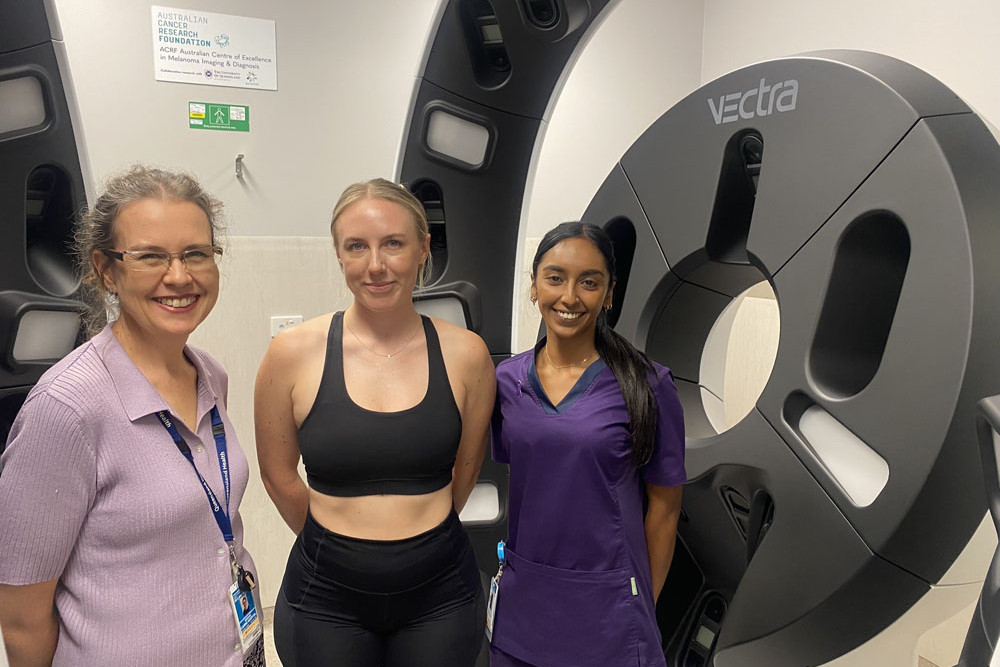General News
11 April, 2023
Skin cancer prevention
World-first melanoma hi-tech 3D body imaging scanner on trial

THE high rates of skin cancer in the Far North have resulted in Cairns being the only regional hospital to trial cutting edge technology.
The Cairns and Hinterland Hospital and Health Service has taken delivery of a $540,000 Vectra 3D whole body scanner, under a world-first melanoma imaging and diagnosis trial.
Cairns will be one of 15 sites nationwide to have one of the machines, to form an inter-connected centre of excellence in diagnostic imaging of early melanoma across metropolitan and regional Australia.
The machines are part of the $10 million Australian Centre of Excellence in Melanoma Imaging and Diagnosis, which have been funded by the Australian Cancer Research Foundation.
The centre is led by the University of Queensland in collaboration with Monash University, and the University of Sydney. Cairns Hospital dermatologist Dr Ilsphi Browne said the machine’s use of 3D imaging technology would allow for objective and secure collection of photography of a person’s skin within a few milliseconds.”
“From there, avatars of a person are generated, documenting all of their skin surfaces – except soles of their feet, scalp and areas covered by clothing – giving us unprecedented levels of detail.
“Every time a patient revisits us, just as you are able to observe changes on a landscape through Google Earth, you can see how their skin changes as well, particularly any suspect or new lesions.”
She said the photography, coupled with artificial intelligence, could eventually reduce the need for a clinician to examine the images.
“This trial aims to train AI (Artificial Intelligence) to alert us to any potential melanomas, reducing the need for clinicians to spend time combing through images – or a person’s skin – ourselves,” she said.
“Having a skin scan could become as commonplace as a mammogram and go a long way to detecting melanoma early and potentially saving lives.”
CHHHS medical services executive director Dr Don Mackie said Far North Queensland had one of the highest rates of skin cancer in Australia, “so our participation in this trial is critical,” he said.
He said the clinical trial was one of more than 50 currently underway at the health service.
Dr Mackie said the Far North was growing and to tackle health problems, such as skin cancer, “we need to come with innovative solutions”.


